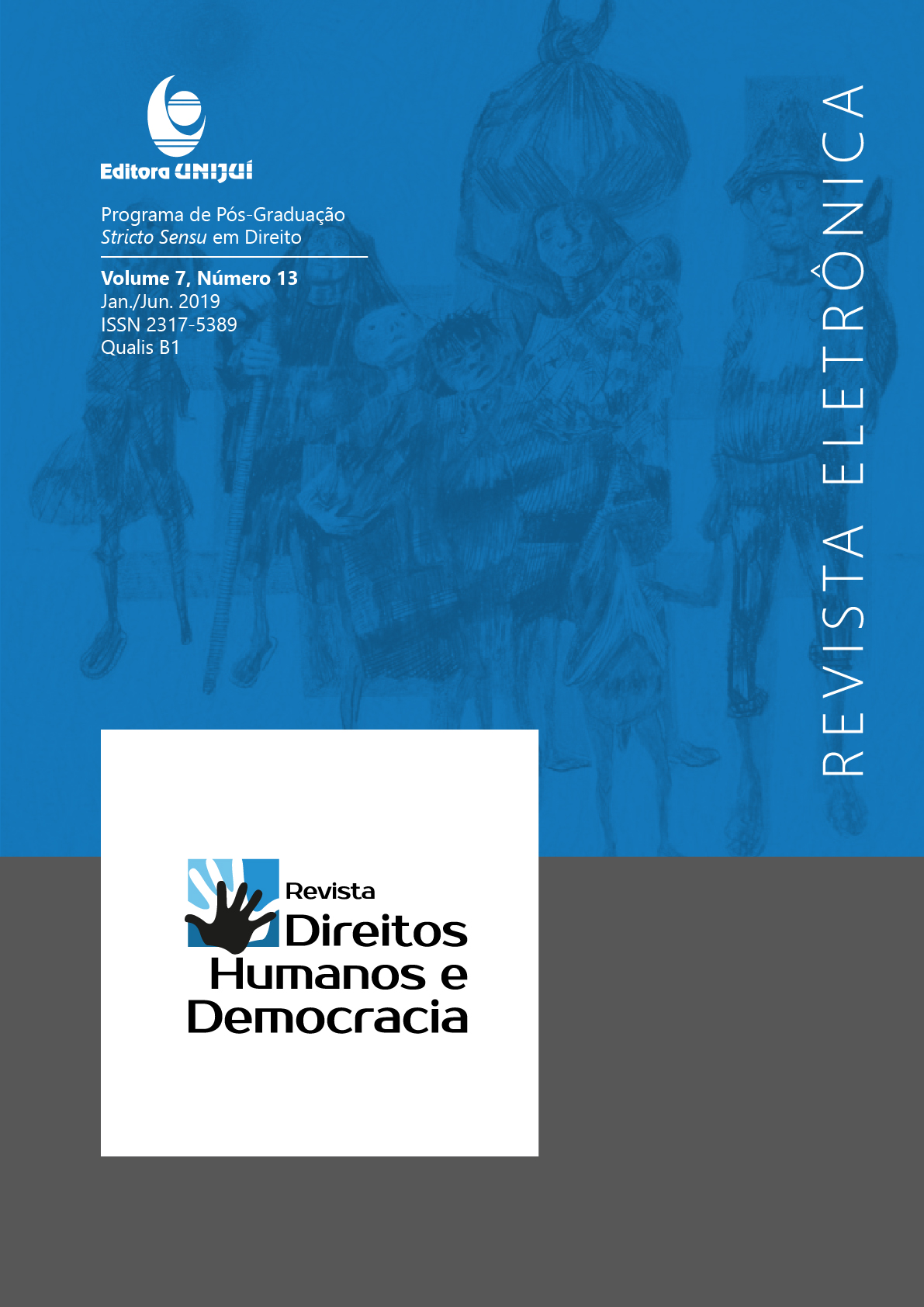CIDADÃOS DE SEGUNDA CATEGORIA: O SOFRIMENTO MENTAL NAS DECISÕES DO SUPERIOR TRIBUNAL DE JUSTIÇA SOBRE AS MEDIDAS DE SEGURANÇA
DOI:
https://doi.org/10.21527/2317-5389.2019.13.37-57Abstract
Apesar da adoção pelo Brasil de uma política desinstitucionalizadora sobre as maneiras de lidar com a saúde mental a partir da Lei 10216/2001, a legislação penal sobre o tema da inimputabilidade do portador de sofrimento mental não foi alterada. Contudo, por mudanças gradativas na orientação da jurisprudência brasileira, alguns avanços ocorreram, como a edição da Súmula 527 do Superior Tribunal de Justiça. Este artigo tem por objetivo compreender se a construção dessa súmula e sua posterior aplicação por esse tribunal representaram uma significativa alteração na representação social do portador de sofrimento mental, bem como dos conceitos de periculosidade e das funções da medida de segurança. Para tanto, após a realização de pesquisa exploratória da bibliografia, apresenta-se os resultados de uma pesquisa documental nos acórdãos do STJ sobre medidas de segurança no período de 2014 a 2016. Conclui-se que, apesar de um avanço no que tange à diminuição da média do tempo de cumprimento da medida de segurança, não houve alteração na terminologia utilizada, na compreensão da periculosidade e da finalidade da medida de segurança. A Lei 10216/2001, apesar de mencionada pontualmente, aparece somente em casos de flagrante ilegalidade na aplicação da lei penal ou de descumprimento da própria orientação do STJ. O chamado inimputável por sofrimento mental continua a ser considerado um cidadão de segunda categoria: por ser visto como um perigo, não goza plenamente nem dos direitos específicos previstos na lei de reforma psiquiátrica, nem das garantias penais.
Downloads
Published
How to Cite
Issue
Section
License
By publishing in the Revista Direitos Humanos e Democracia, authors agree to the following terms:
Articles are licensed under the Creative Commons Atribuição 4.0 Internacional (CC BY 4.0), which allows:
Share — copy and redistribute the material in any medium or format;
Adapt — remix, transform, and build upon the material for any purpose, including commercial use.
These permissions are irrevocable, provided the following terms are respected:
Attribution — authors must be properly credited, with a link to the license and indication of any modifications made;
No additional restrictions — no legal or technological measures may be applied that restrict the use permitted by the license.
Notices:
The license does not apply to elements in the public domain or covered by legal exceptions.
The license does not grant all rights required for specific uses (e.g., image rights, privacy, or moral rights).
The journal is not responsible for opinions expressed in the articles, which remain the sole responsibility of the authors. The Editor, with the support of the Editorial Committee, reserves the right to suggest or request modifications when necessary.
Only original scientific articles presenting research results of interest, not previously published or simultaneously submitted to another journal with the same purpose, will be accepted.
References to trademarks or specific products are intended solely for identification purposes and do not imply any promotional endorsement by the authors or the journal.
License Agreement: Authors retain copyright over their articles and grant the Revista Direitos Humanos e Democracia the right of first publication.













